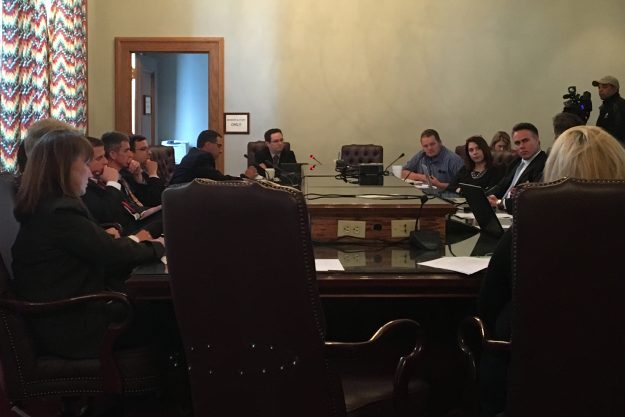Arkansas open data committee lays groundwork for potential IT centralization

LITTLE ROCK, Ark. — An initiative centralizing Arkansas’ data resources could lay the groundwork for a more centralized and efficient state, members of the state’s newly-established Open Data and Transparency Task Force said during a meeting last week at the state capitol.
The task force heard presentations from three data warehouse vendors, in addition to a presentation of a legislative audit on the potential benefits of a centralized data warehouse for the state.
The audit, delivered by the Legislative Joint Auditing Committee, recommended that the state hire a chief data officer to oversee the development and rollout of a centralized data warehouse.
“The state has an opportunity here that we shouldn’t pass by and we need to explore further,” Roger Norman, the state’s legislative auditor said at the task force’s February 25 meeting. “We have gone into the situation dealing with state agencies and their silos and if they’re not sharing information from one agency to another, it’s difficult at best.”
The audit pointed to the examples of several other states – including Washington, New York, Connecticut, Indiana, South Carolina, Georgia and Louisiana – that have used big data analytics, like the kind that is being proposed in Arkansas, to tackle issues with fraud and health care.
While the state has not yet committed to establishing a central data warehouse, or to centralizing its IT operations, “We see this as a way to make better management decisions and increase the effectiveness and efficiency of state government to cut down on all the fraud, waste and abuse in the administration of various programs.” Norman said. “It is our hope and desire that these talks can continue and that we can explore the opportunities that are available with the establishment of data warehouses.”
In addition to the legislative audit report, the task force heard recommendations from three private sector companies – Teradata, SAP and SAS – on the benefits of central data warehouses and a centralized data warehouse.
Mark Myers, the state chief technology officer and the director for the state’s Department of Information Systems, said at the meeting that a centralized data warehouse would make data security easier for the state.
“When you have a common platform, you’re able to more centrally manage the security,” Myers said. “Today, the security architecture for the state of Arkansas is such that while there is a security cooperation committee like this, there’s no way for us as a state to enforce data mechanisms.”
According to Myers, in a centralized IT structure, the information systems office would have the ability to manage the data warehouse security posture and implement more security controls over the data.
The task force will continue exploring the need for a data warehouse, and the merits surrounding open data and transparency and provide a written report to the governor and to the legislature about its findings and recommendations by the end of this year. From there, it will be up to the legislature to act on those recommendations.






